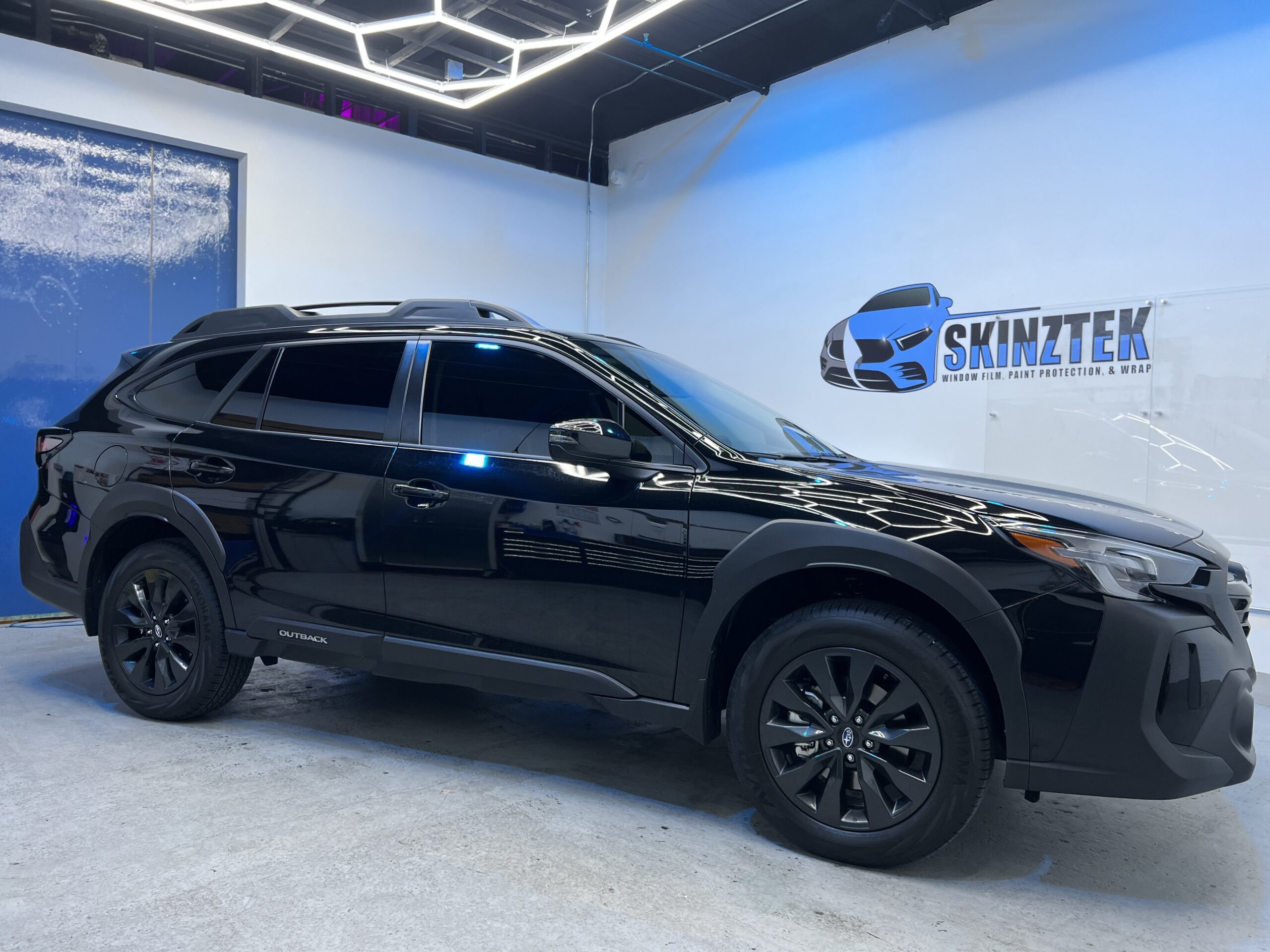
When it comes to enhancing the comfort and safety of your vehicle, one of the most effective solutions is window tint. Many people are aware that window tint helps reduce glare and improve privacy, but one of the most crucial benefits it provides is protection against harmful ultraviolet (UV) radiation. Understanding the science behind UV protection in car window tint can help you make an informed decision about safeguarding your health and vehicle.
What is UV Radiation?
Ultraviolet (UV) radiation is a form of electromagnetic radiation emitted by the sun. It is categorized into three types based on wavelength: UVA, UVB, and UVC. While UVC is mostly absorbed by the Earth’s atmosphere, UVA and UVB reach us and have significant effects on our skin, eyes, and overall health:
- UVA (320-400 nm): Long-wave radiation that penetrates deep into the skin, contributing to premature aging and wrinkles.
- UVB (280-320 nm): Medium-wave radiation responsible for sunburn and plays a major role in developing skin cancer.
How UV Radiation Affects Your Vehicle
Just as UV radiation can damage your skin, it can also have detrimental effects on your vehicle. Prolonged exposure to UV rays can cause fading and deterioration of your car’s interior, including the dashboard, seats, and upholstery. This not only affects the aesthetics of your vehicle, but can also reduce its overall value. Protecting your car’s interior from UV damage is crucial to maintaining its appearance and longevity.
How Does Window Tint Block UV Rays?
Car window tint is specially designed to block a significant amount of UV radiation from entering your vehicle. The science behind this protection lies in the materials and technology used in window tint films:
- Material Composition: Most window tints are made from a polyester base layer that is coated with metal particles, dyes, or ceramic materials. Each type of material has a unique way of reflecting or absorbing UV radiation. For instance:
- Dyed Window Tint: This type of tint uses a layer of dye to absorb solar heat and UV radiation. While effective to some extent, dyed tint primarily serves aesthetic purposes and does not offer the highest level of UV protection.
- Metalized Window Tint: Containing microscopic metallic particles, this tint reflects UV radiation away from the vehicle. However, it can interfere with electronic signals, such as GPS and mobile phone reception.
- Ceramic Window Tint: A study published by the Skin Cancer Foundation found that ceramic window tint can block up to 99.9% of UVA and UVB rays, offering a high level of protection against skin cancer and skin damage, along with providing excellent heat rejection and glare reduction.
- UV-Absorbing Coatings: Some high-quality window tints are treated with a special UV-absorbing coating that enhances their ability to block both UVA and UVB rays. This helps in preventing skin damage, reduces the risk of skin cancer, and keeps the car’s interior cool and protected.
- Infrared Rejection Technology: Premium window tints may also include infrared (IR) rejection technology. While this focuses on blocking infrared radiation, which is responsible for heat buildup, many IR rejection films also provide excellent UV protection.
Benefits of UV Protection from Window Tint
The UV protection offered by car window tint provides several key benefits:
- Skin Protection: Prolonged exposure to UV radiation can cause skin damage, ranging from sunburn to skin cancer. As previously mentioned in the study by the Skin Cancer Foundation, high-quality window tint can block up to 99% of UV rays, providing an extra layer of protection for you and your passengers.
- Prevents Interior Fading: UV rays are a major cause of fading in vehicle interiors, affecting leather, fabric, and plastic components. By blocking UV radiation, window tint helps preserve the look and feel of your car’s interior, extending its lifespan.
- Reduces Heat Build-up: By blocking a significant portion of UV and infrared radiation, tinted windows help maintain a cooler interior temperature, reducing the need for air conditioning and improving fuel efficiency.
- Enhanced Safety and Comfort: Tinted windows not only provide UV protection but also reduce glare from the sun, headlights, and other reflective surfaces, enhancing visibility and reducing eye strain while driving.
Choosing the Right Window Tint for UV Protection
When selecting window tint for your car, it’s essential to consider the level of UV protection offered by different types of films. While all tints provide some degree of UV blocking, ceramic films are known to offer the highest level of protection without compromising visibility or electronic signals.
Moreover, it’s crucial to work with a professional installer who understands the local regulations and can recommend the best film for your specific needs and budget.
Conclusion
Car window tint is more than just an aesthetic upgrade, it’s an investment in your health and the longevity of your vehicle. The science behind UV protection in window tint demonstrates how this simple addition can safeguard against harmful radiation, enhance comfort, and protect the value of your car. If you’re considering window tint for UV protection, be sure to choose a high-quality film and a professional installer to ensure you get the best results.
For expert window tint services in Chicago, contact us at (312) 261-0555. We specialize in providing high-quality, UV-protective window tint that keeps you safe and your car looking its best.
